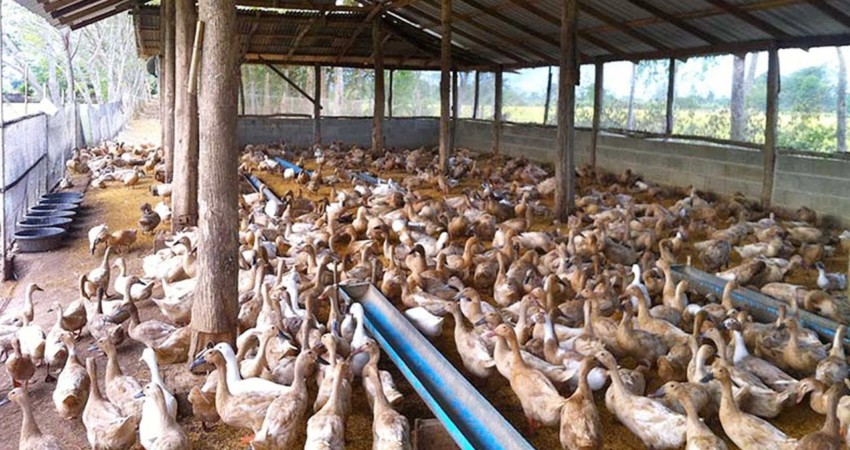

Ducks are domesticated birds that are reared for their meat and eggs like chicken and other poultry. But in Uganda, few farmers have embraced the rearing of ducks, with many opting to rear other types of poultry instead.
This is mainly because duck rearing is not economically viable as not many people eat duck’s meat and eggs. However, with the increasing prices of chicken eggs, duck eggs can provide an effective alternative as they can be used for everything that chicken eggs can be used for and this also applies to duck meat.
According to Mr Henry Kasozi, an animal husbandry professional, duck’s eggs provide a taste that is different and tastier than chicken eggs. But because some people simply have a negative attitude towards eating duck eggs, many think that they are not tasty and have never tried to eat them. According to the 2008 livestock census, the number of ducks in the country was estimated at only 1.5 million while the other poultry was estimated to be 37.4 million.
The census indicates that only one out of every 25 households in the country own ducks. But Mr Kasozi says that despite the fact that there are few people who eat ducks, the rearing of ducks can be an economically viable venture as some people especially in north and eastern Uganda do enjoy duck meat and eggs.
Apart from people not being interested in ducks, Mr Kasozi also blames the continued small number in the country on lack of parent stock or hatcheries which hatch eggs. He points out that ducks have many advantages over chicken.
Advantages
Ducks are very resistant to catastrophic and erosive diseases of poultry like New castle disease compared to chicken. He adds that ducks don’t require any sophisticated housing and need less attention than chicken. This means a farmer spends less on constructing a house for ducks and looking after them.
Also when locally raised, hatchability in ducks is higher compared to chicken because of their thick plumage that ensures effective incubation of most of the eggs. Ducks lay more eggs than chicken with one duck laying about 40-50 eggs. This translates into higher profits in case a farmer rears ducks for eggs.
In addition, they have a high growth rate and high feed conversion rate and body gain higher than that of chicken. Mr Kigozi explains that given the same amount of feed in the same period, a duck will put on more weight than chicken. A drake (male duck) weighs higher than a cock of the same age. Another advantage is that ducklings are less susceptible to predators like kites compared to chicks which means ducks can easily grow in number than chicken.
Diseases
As pointed out, ducks are resistant to poultry diseases but a few diseases can attack them and these include: The Blackhead disease which infects a duck after ingestion of Caecal worms, known as Heterarisgallinarum, which is an intermediate host for a protozoa parasite known as Histomonas meriagridis. The most prominent symptoms of this disease is the darkening of the head and neck of the duck. The duck also loses appetite and can die.
New castle disease can also affect ducks but because they are naturally resistant they may be less severely affected. Mr Kasozi says that farmers carrying out fish farming can embrace duck rearing in what is known as duck cum fish farming.
Under this type farming, he explains that a house for ducks with a salted floor is constructed above the fish pond so that the droppings fall into the pond. These droppings are a good source of food for the fish and when fish is harvested the offals are, in turn, given to the ducks to feed on.
By doing so, a farmer spends less on buying feeds for fish. Mr Kasozi, however, observes that unless extension workers educate farmers about the importance and the several advantages of duck rearing, many farmers will continue to ignore this form of farming. “Even though duck meat has no big market, if farmers rear and eat their meat, this can bridge the protein gap in local communities especially among infants,” he points out.
 Contact Jaguza Support
Contact Jaguza Support